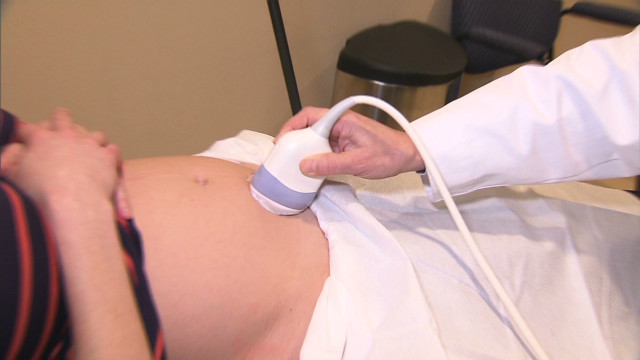Story highlights
- Report suggests a baby boom 9 months after Superstorm Sandy at some N.J. hospitals
- Some couples told CNN their children were conceived during the storm
- Experts disagree over whether disasters lead to baby booms
- Some doctors say it's a myth
It's getting a lot of chatter, but is it real?
A new story about some New Jersey hospitals seeing a spike in births nine months after Superstorm Sandy has sparked talk that there just might be a post-Sandy baby boom.
Monmouth Medical Center in Long Branch is seeing a 35% jump, and two other hospitals are seeing 20% increases, a review by the Asbury Park Press found.
It's the latest in a series of reports suggesting that when Mother Nature knocked out the power, some couples who were cooped up at home let nature take its course there, too.
As CNN's Susan Candiotti reported in March, some doctors have been overwhelmed with business.
"It got to the point where we had to stop seeing new obstetrical patients to the practice," said Dr. Robert Rubino, who runs an OB/GYN practice in West Orange, New Jersey.
"We think we have a Sandy baby," Rubino's patient Meredith Swormstedt and her husband Hank told CNN.
Stephanie Tych and Brian Boruch said the same.
"Well, there was no TV," Boruch said, blushing.
Tych put it this way: "We just got closer."
For these couples, there's no doubt that Sandy -- amid all its destruction -- led to something joyous.
A study suggests some natural disasters lead to an increase in pregnancies -- not where the destruction is most severe, but in areas that are affected and remain livable.
"You may run out of power, but you're not running for your life. There's probably more opportunities for reproductive behavior," says Richard Evans, an assistant professor at Brigham Young University and author of the 2007 study "The Fertility Effect of Catastrophe."
In 2009, CNN affiliate KPRC reported on some hospitals seeing an increase in births after Hurricane Ike.
But some hospitals in the area struck by Sandy are not reporting any increase in birth rates nine months after the storm.
New York City's Mount Sinai hasn't seen any such spike, Dr. Raymond Sandler, head of labor and delivery for the hospital, told CNN on Wednesday.
The idea that people have more babies after natural disasters is "just not documented," he says. "I don't know why people are even saying it."
These days, most people plan when to have children, and don't suddenly change their minds in a storm, says Sandler, who has worked in obstetrics in New York for 40 years.
And those who "don't practice safe sex -- they're going to have babies whether the lights are out or not," he said.
Snopes.com, the online myth debunking site, says the baby boom reports that inevitably follow nine months after crises "typically prove to be nothing more than natural fluctuations in the birth rate," or, in many cases, no variation in the birth rate at all.
Carl Haub, a demographer with the Population Reference Bureau, a nonprofit that provides information about population trends, has looked at birth rates for decades and never found clear evidence that a region has a baby boom nine months after a disaster.
It's possible, but it's "hard to pin down" variations "to a single event," he told CNN on Wednesday. When post-storm baby booms are reported, they're usually by individual hospitals, not broad regions, he said. So people in a small area may have stayed in and stayed busy, but they didn't represent a big swath of the population.
Nine months after the New York City blackout in November 1965, The New York Times reported on a sharp increase in births. The report turned out to be inaccurate, which the Times itself later acknowledged.
It will be some time before it can be determined whether Sandy caused an overall baby boom in the Northeast. Birth figures would need to be tallied and studied for numerous factors, particularly in areas that have been growing anyway.
But for the couples CNN spoke with, what matters is the baby boom at home.
Hank and Meredith Swormstedt told CNN they ruled out one name for their child pretty quickly: "Not Sandy."





